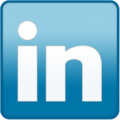Individual Mandate: Not So Much a Mandate Anymore
Last week, the Internal Revenue Service (IRS) and the Health and Human Services Agency (HHS) published rules governing the individual mandate that, according to HealthLeaders Media, “include such extensive exemptions that only 2% of the population would owe a penalty, or ‘shared responsibility payment’ for not having coverage under a health plan.”
As contained in the federal Patient Protection and Affordable Care Act (PPACA), the individual mandate takes effect in 2014 and levies fines for failure to document coverage at the greater of $95 or 1 percent of annual income capped at $285 (triple the flat rate) for that year. After that, the penalty will grow until it reaches a ceiling in 2016 of the greater of $695 or 2.5 percent of annual income capped at $2,085. The IRS will be the compliance authority, empowered to seize tax refunds as payment toward unpaid penalties.
Under the proposed IRS and HHS rules, however, large portions of the population would be exempt from paying the penalty; specifically, those who cannot afford coverage, members of American Indian tribes, people who qualify for hardship exemptions, individuals who have short coverage gaps, those who don’t want to purchase health insurance for religious reasons, members of “health sharing ministries,” and jail and prison inmates.
It is true that some of these exemptions were included in the federal law, but the liberal rules being proposed by the HHS provide “an exemption for hardship to particular circumstances that impact an individual, but cannot adequately be predicted in advance.” The agency further asserts its expectation “that these circumstances will include, but not be limited to, situations in which an applicant is homeless, receives a shut-off notice from a utility company, faces a natural disaster, or experiences other unexpected natural or human-caused event causing significant damage to the applicant or his or her home.” The rules also provide other exemptions that will make it easier for individuals to avoid penalties. See the fact sheet for further details.
Let’s be reminded, an individual mandate is central to sustaining private health insurance in the U.S. for those health plans whose underwriting rules were changed by the PPACA. Eliminating rescission practices and banning exclusions due to pre-existing conditions—essentially requiring health plans to take all comers in the individual coverage market—works if and only if everyone, not just those who fall ill, signs up and pays their fair share for coverage. Arguably, removing the threat of a tax penalty will deter large segments of our healthy but uninsured population from seeking or sustaining health insurance coverage.
A public hearing on these new rules is scheduled for May 29. Comments on the proposed HHS rule are due by March 18, and by May 2 for the proposed IRS rule.
Your thoughts?




Comments
Again, good thoughts. I